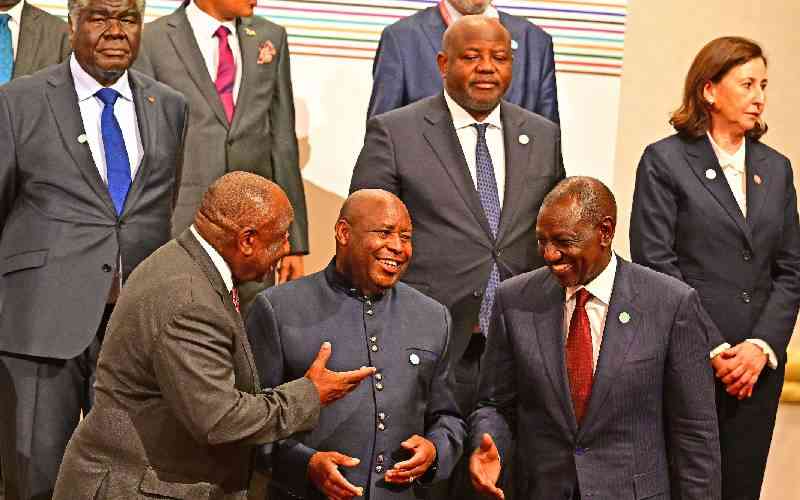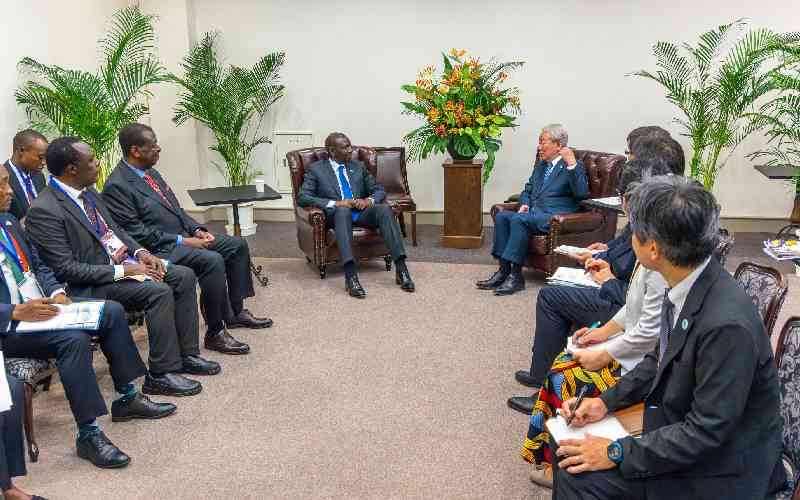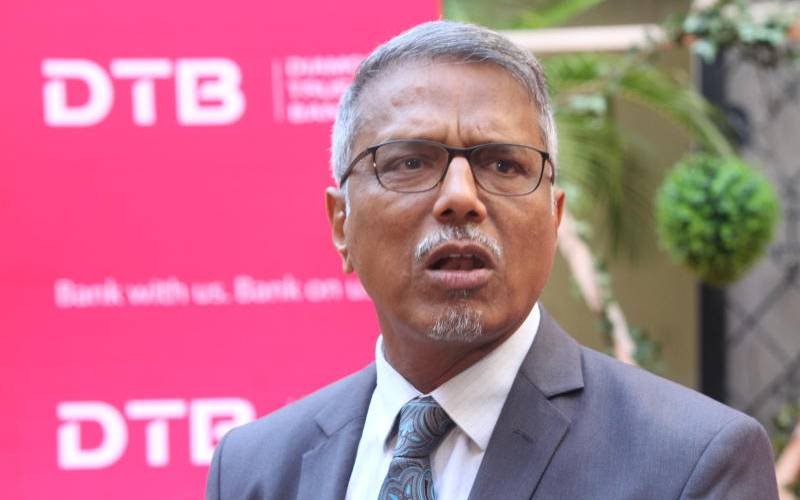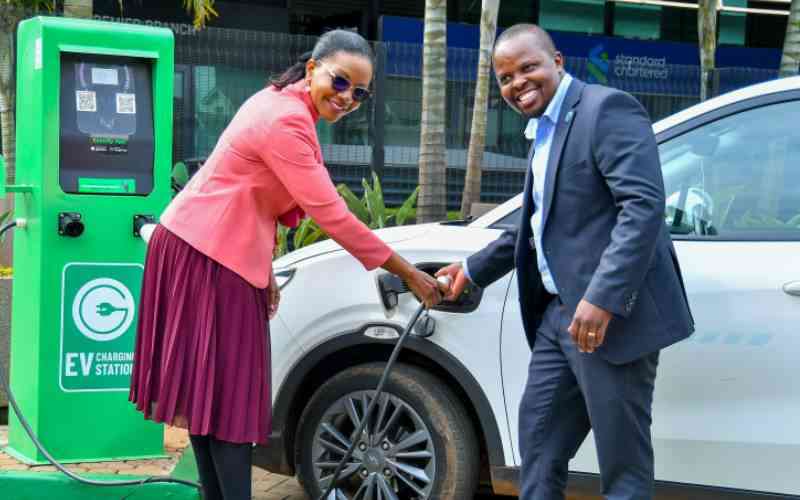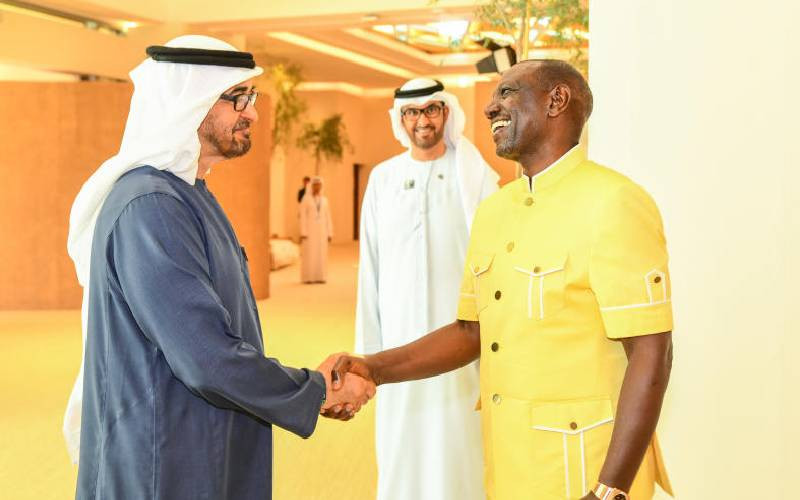
President William Ruto and President Sheikh Mohamed bin Zayed Al Nahyan of the United Arab Emirates and the ruler of Abu Dhabi at Expo City Dubai, United Arab Emirates. [File, Standard]
The cooperation between Kenya and the United Arab Emirates (UAE) is gathering steam with the anticipated visit of UAE ruler Sheikh Mohammed bin Zayed Al Nahyan scheduled to take place before December this year.
The visit is meant to cement trade deals worth billions of shillings as well as enhance work relations between the two countries.
Trade between the two countries has increased over the last decade, and with the signing of seven Memoranda of Understanding (MoUs) in January by President William Ruto and Nahyan, it has cleared the path for more economic and investment opportunities for the two countries.
Through the Comprehensive Economic Partnership Agreement (CEPA), the two countries have started experiencing open markets, reduced trade barriers, increased non-oil trade and investments in fields such as Information Communication Technology, banking, tourism, renewable energy, infrastructure and carbon markets. “The CEPA will unlock opportunities for our businesses and create jobs for our youth while positioning Kenya as the gateway to East Africa,” said President Ruto during the signing of the MoU in Abu Dhabi earlier this year.
Kenya is also gearing up to utilise the CEPA to diversify its exports, especially in areas like leather, textiles, and processed foods.
The agreement is geared towards deepening trade ties, simplifying customs procedures, and promoting industrialisation and regional value chains.
It aims to remove various barriers that have impeded the economic transformation by eliminating tariffs on over 80 per cent of traded goods between the two countries, with Kenya aiming to increase its exports to the UAE by up to 40 per cent within five years.
“For instance, in 2023, Kenya exported Sh9.9 billion worth of meat and Sh10.8 billion in fruits and vegetables in the UAE, and the agreement seeks to double these exports and many other products since the trade barriers have been removed,” stated government spokesperson Dr Isaac Mwaura in a past press briefing.
“CEPA goes beyond trade in goods, but we are unlocking other service providers in education, transport, construction and ICT and also paves the way for technology transfer and collaboration, positioning Kenyan businesses to compete globally.” The UAE is Kenya’s top trading partner in the Gulf region, with a bilateral trade volume worth $3.4 billion (Sh400 billion) in 2023.
It is Kenya’s third-largest trading partner globally, with the main exports to Kenya being petroleum products, machinery, vehicles, and electronics.
